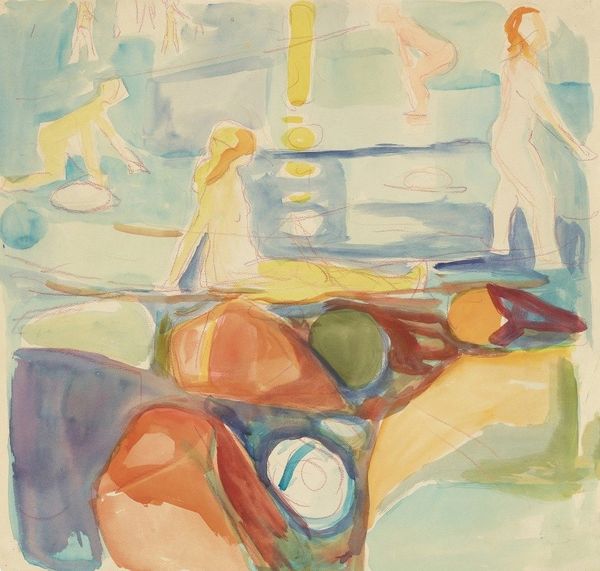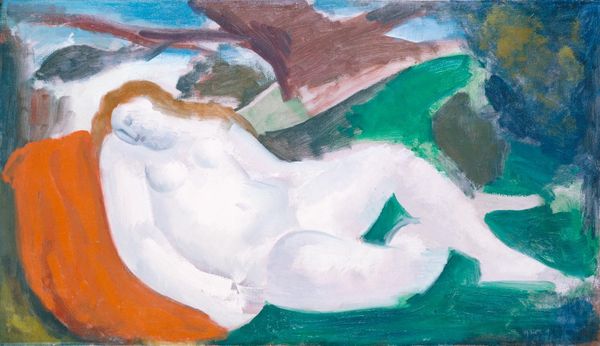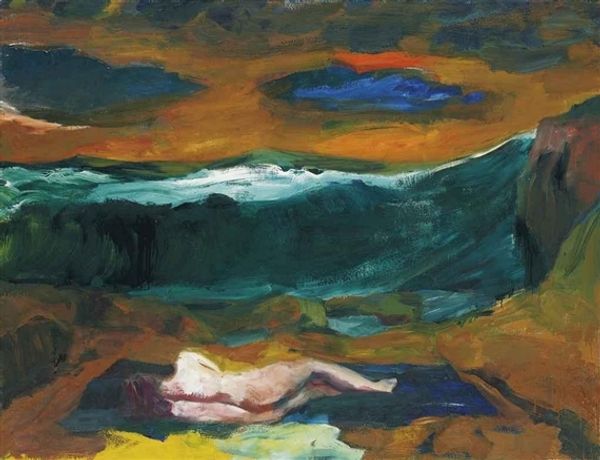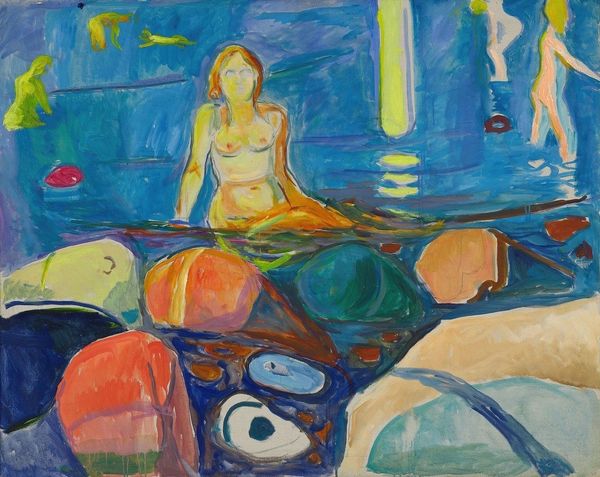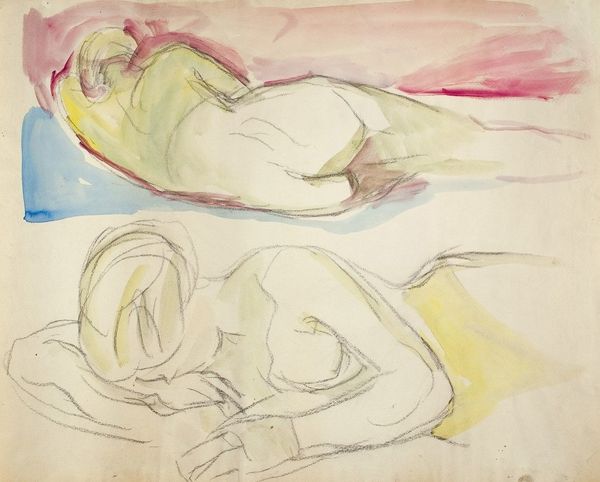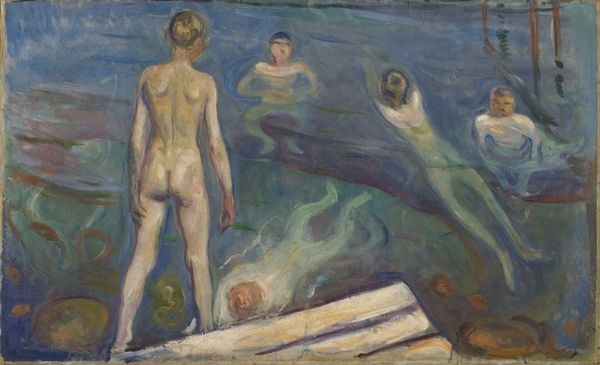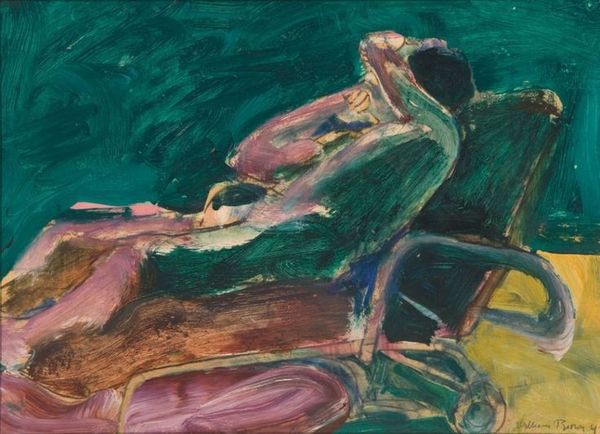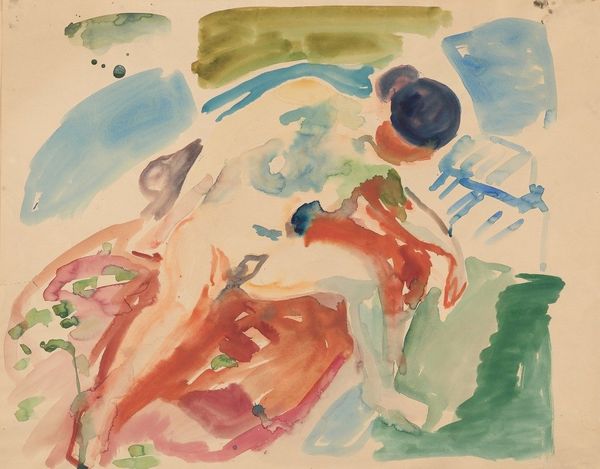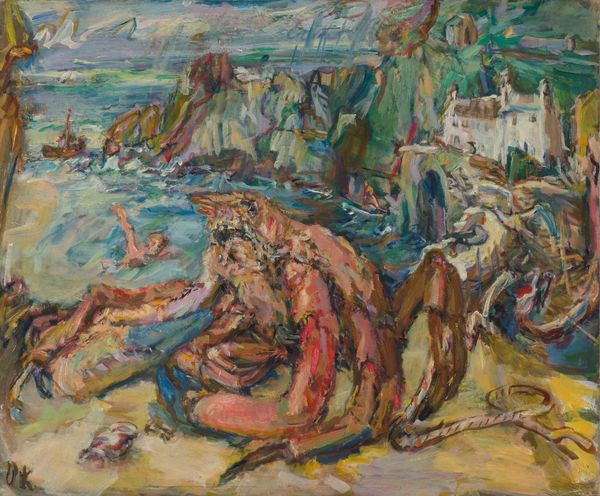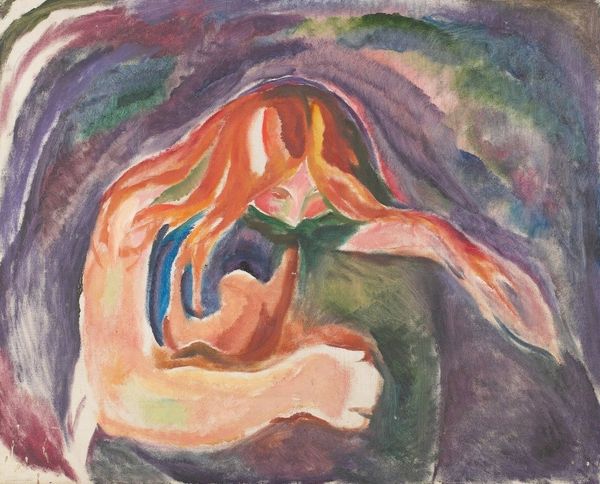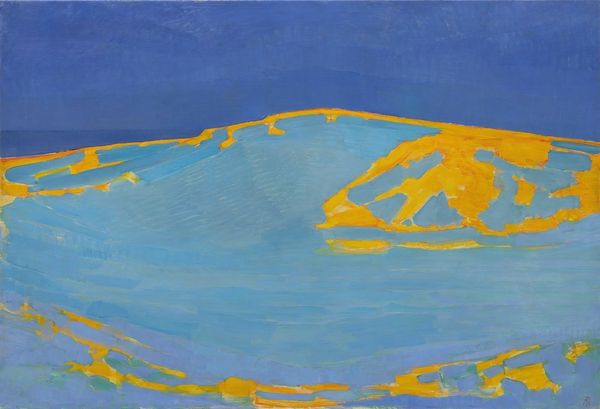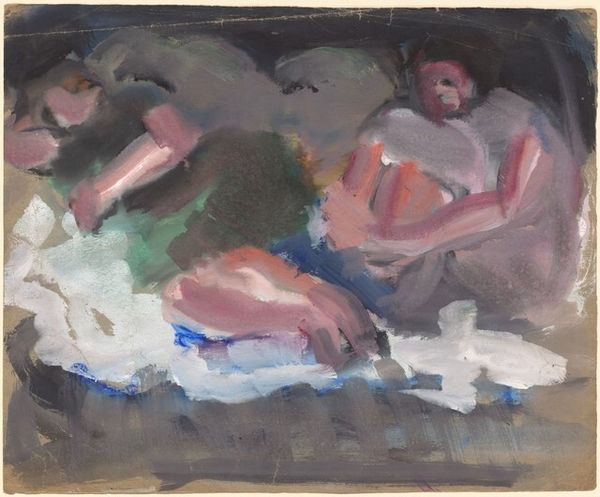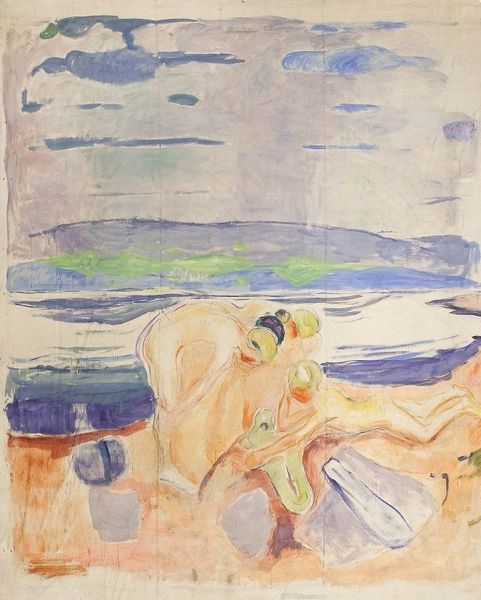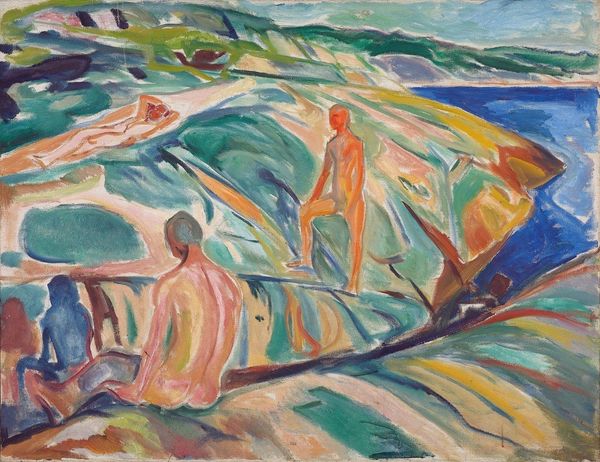
painting, oil-paint
#
fauvism
#
painting
#
oil-paint
#
landscape
#
figuration
#
possibly oil pastel
#
oil painting
#
underpainting
#
painting painterly
#
symbolism
#
post-impressionism
#
nude
Copyright: Public Domain: Artvee
Editor: Here we have Edvard Munch's "Venus," painted around 1904-1905, an oil on canvas work. I'm immediately drawn to the contrast between the relaxed figure in the foreground and the active bathers in the background. What can you tell me about this piece? Curator: Munch's "Venus" offers a powerful statement about female identity in a changing social landscape. Notice how the reclining figure dominates the composition, her gaze directed away from the frolicking figures, suggesting a conscious choice of self-reflection. It makes one wonder, is this about embracing the objectification of women throughout art history, or critiquing it? Editor: That's a great question. The figures in the back almost seem carefree, whereas the foregrounded Venus looks rather contemplative. Curator: Exactly! Consider how societal expectations confine women and prescribe their behavior. While the bathers are presented in the public space, enjoying collective activity, the foregrounded figure exists within a frame that's often prescribed: beauty, serenity, passivity. She is simultaneously free, due to being on the beach, and captive, as an object of the gaze. Editor: So it's not just a pretty picture, it's about the push and pull of societal expectations around women? Curator: Precisely. And it challenges us to think critically about representation and power. What narratives are embedded in how women are portrayed, and whose voices are being amplified or silenced? It also questions who is allowed to experience freedom and joy, and under what conditions. Editor: I hadn't considered the societal aspect so overtly before, seeing it simply as a nude figure. Now I recognize its potent message on femininity and representation. Thank you for sharing such an intersectional approach. Curator: It’s in understanding art through diverse perspectives that we empower ourselves and create spaces for more inclusive conversations.
Comments
No comments
Be the first to comment and join the conversation on the ultimate creative platform.
